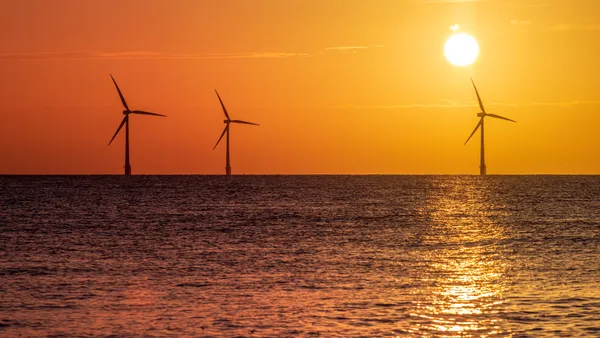Dive Brief:
-
PJM Environmental Information Services will begin trading energy certificates with hourly time stamps on its existing Generation Attribute Tracking System in March.
-
The new offering is a response to requests from customers, who are increasingly interested in more granular generation data, according to Ken Schuyler, president of PJM Environmental Information Services. Growing in 24/7 renewable energy goals has prompted the creation of several related services in recent months.
-
Although primarily of interest to select voluntary energy buyers at the moment, Schuyler said he believed demand for the time-stamped emissions data would rise as efforts continue to decarbonize the electric grid.
Dive Insight:
Corporate buyers looking to ensure their energy purchases are carbon-free around the clock will soon be able to trade hourly renewable energy certificates on PJM’s generation registry at no extra cost.
PJM has been tracking and collecting generation hourly since 2005, Schuyler said. But up to this point, he said, there was little to no demand for the hourly data. Customers needed monthly or annual data to meet corporate goals or satisfy statutory mandates, so PJM bundled the data into month-by-month certificates.
Next month, the ISO’s registry will also offer certificates with time stamps verifying hourly generation data for interested customers in response to demand. The standard hourly certificates will remain available alongside the new offering.
“The voluntary markets—large corporations and even the federal government—are looking to have more information about renewable energy they purchase, and they were asking for registries like us to make information available on an hourly basis,” Schuyler said.
Although other entities already offer 24/7 clean energy products, the entry of PJM into the space will provide customers with a “transparent, independent, auditable, and traceable way to certify that the energy they are using is carbon free every hour of every day,” according to retail energy supplier Constellation, which launched its own 24/7 carbon free energy product in March 2022.
Google in 2020 popularized the concept of 24/7 clean energy coverage, in which an energy customer aims to match its purchases of carbon-free energy with its hourly energy needs when it announced its own plan to achieve the milestone by 2030. Other large corporations have since followed, and there has been a rapid growth in interest—even among mid-sized business—in the past six months, according to Leesa Lee, chief marketing office of grid services firm Gridmatic.
Gridmatic, which was founded in 2017 to develop and commercialize AI-based software for balancing the grid, began offering 24/7 carbon free energy management services in January. Their technology can predict energy demand and match it with generation from intermittent renewable resources, and seemed like a natural solution for customers looking to reduce their carbon footprint, Lee said.
The company now has one contract in place, and several others in the works, to help customers match their hourly energy use with clean energy supplies.
Information available hourly in the region is probably not needed, Schuyler said. A large share of electricity is not carbon-free and emissions in the region don’t vary much across the hours of the day.
As the percentage of clean energy on the grid grows and emissions are increasingly concentrated within hours of peak energy use, the importance of time-stamped energy certificates will likely grow, he said.














